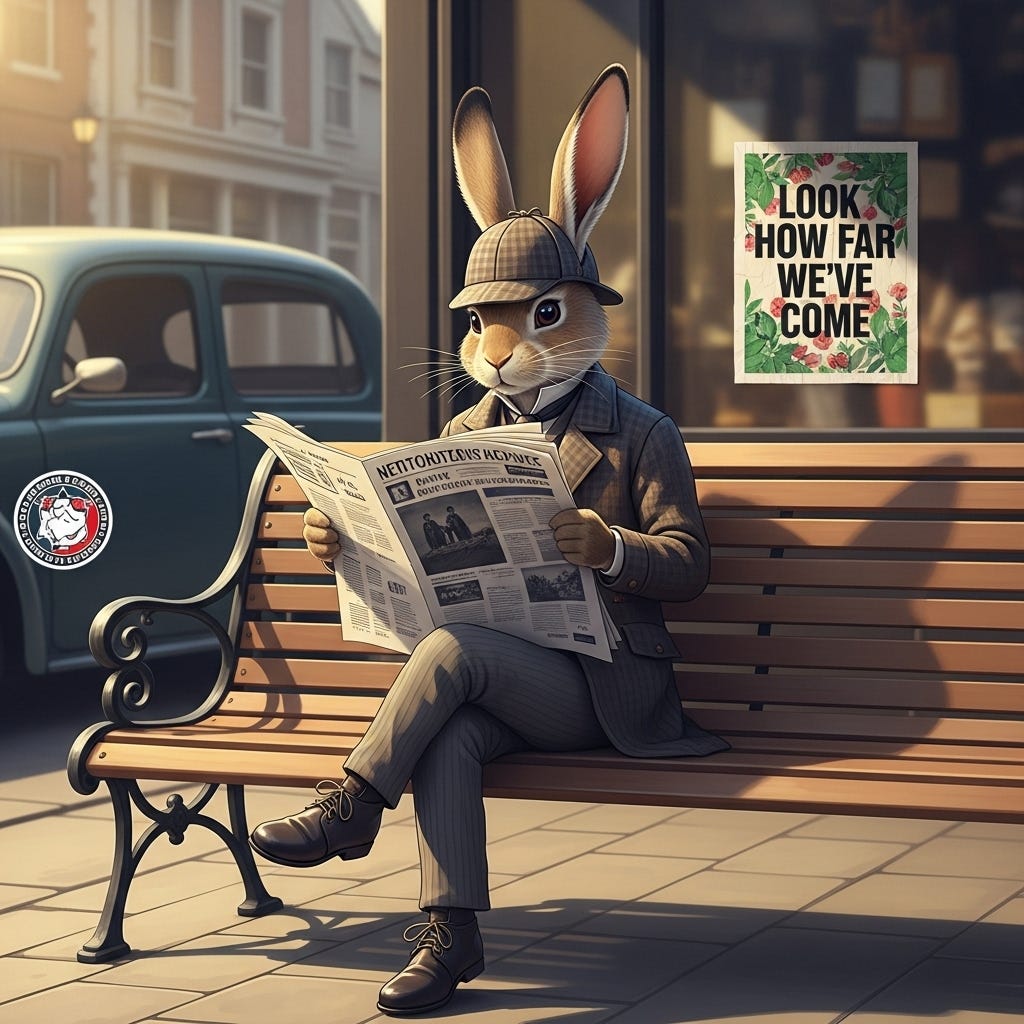I Used To Think 2028
A reader left a comment on one of my earlier posts asking about how they might be able to find all of the posts that I have written about AI. You can just search by tag, of course, if you too were wondering.
But as I was typing my reply, I figured it would be fun to go back and take a look at the first post I wrote about AI. And so I did.
Now, while I have linked to posts by others about AI before I wrote my own, the first post that I myself ever wrote on AI was back in April of 2022. It was a post about Dall.E, and it had this generated image:

Here's what that looks like in 2025:

Still not perfect, of course. But I'd love to hear from you if you think it is not that much better.
There are two things of note (to me) in that post. First, this rumination:
And that begs an age-old question where economists are concerned: is technology a complement to human effort, or a substitute for it? The creators of Dall-E 2 seem to agree with Steve Jobs, and think that the AI is very much a complement to human ingenuity, and not a substitute for it.
I’m not so sure myself. For example: is Coursera for Campus a complement to my teaching or a substitute for it? There are many factors that will decide the answer to this question, including quality, price and convenience among others, and complementarity today may well end up being substitutability tomorrow. If this isn’t clear, think about it this way: cars and drivers were complementary goods for decades, but today, is a self-driving car a complement or a substitute where a driver is concerned?
Still worth thinking about!
And second:
How long before I can ask AI to create a movie just for me? Or just me and my wife? Or a cartoon flick involving me and my daughter? How long, in other words, before my family’s demand for entertainment is created by an AI, and the supply comes from that AI being able to tap into our personal photo/video collection and make up a movie involving us as cartoon characters?
Millions of households, cosily ensconced in our homes on Saturday night, watching movies involving us in whatever scenario we like.
It's 2025, and we've all already been Ghiblified. Images, not movies, of course, but still. And just from today, this news:
Moving Archives, a new program from Google Arts & Culture Lab, explores how Google AI can bring visual archives to life. For the first edition we’ve collaborated with the Harley-Davidson Museum, whose rich collection is a treasure trove for anyone interested in motorcycling, the history of this iconic American brand and even broader American culture and industry.
With the help of Veo, we animated the Harley-Davidson Museum’s still archival imagery with subtle motion. You can switch easily between the original archival image and the AI video. See a glimpse of an old factory floor, board track racers or young people learning to ride. Gemini also generates insightful text and audio commentary for each animated photograph.
Here, try this one.
Back in 2022, I remember thinking those movies I was talking about will be here by 2028. We're pretty much on track, I'd say.
You?

